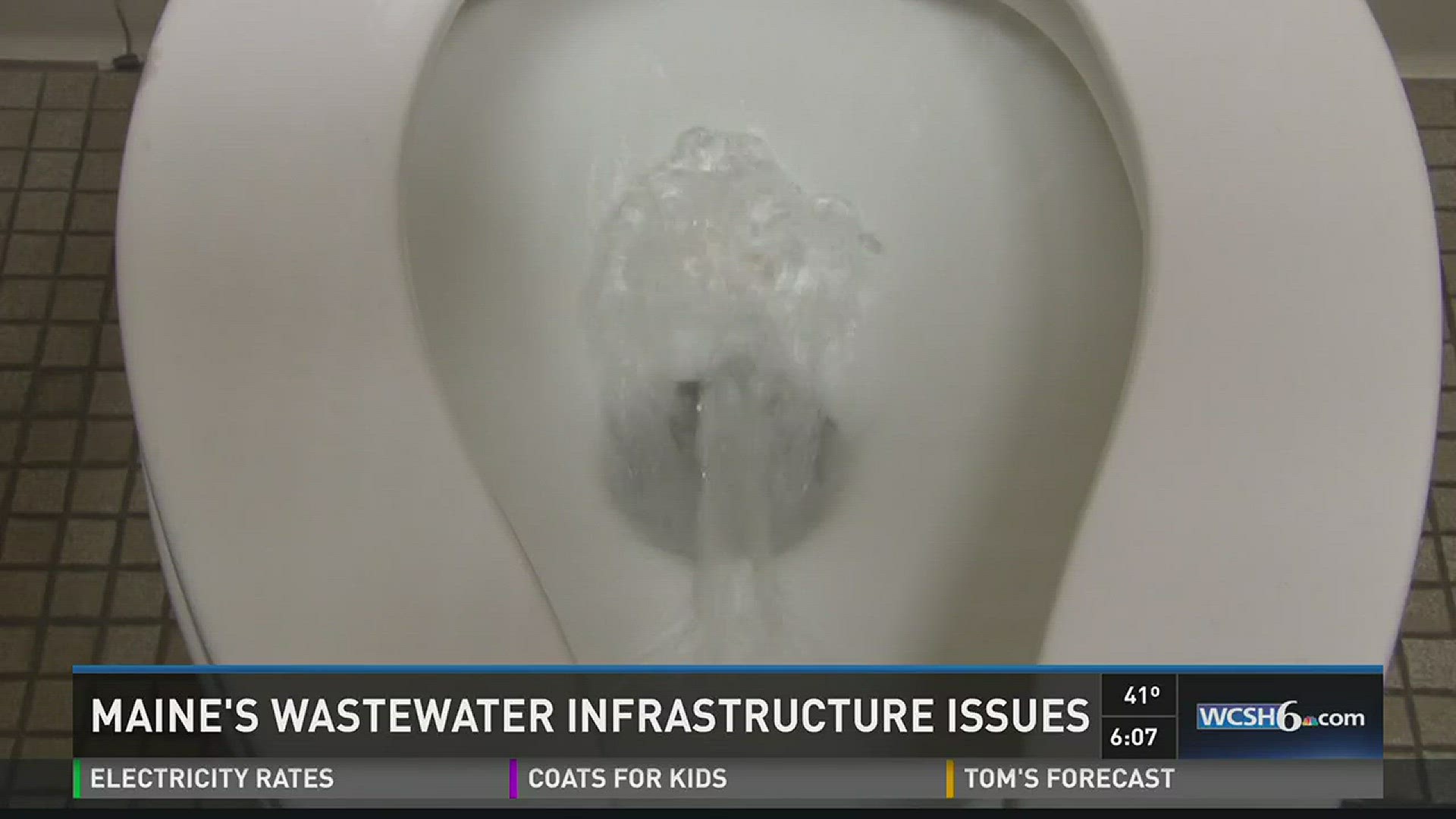(NEWS CENTER) -- Improving municipal wastewater is probably not a topic that came up over Thanksgiving dinner.
But it's one that you should be aware of, and one that is important to many city and state officials.
A recent study gave failing grades to some aspects of Maine's infrastructure, including wastewater, but the steps needed to raise that grade are complicated, and expensive.
According to the Maine chapter of the American Society of Engineers, upgrades are needed across the state. The 2016 Report card for Maine's infrastructure gave municipal wastewater a grade of D+, citing aging facilities, and another big issue that bubbles up when storms hit: combined sewer overflow, or CSO.
Combined sewers collect sewage from homes and businesses and also storm water. When the weather is nice, a barrier directs the combined storm water and sewage to the treatment plant.
But in a heavy storm, the mixture can overflow, ending up in a body of water, instead of backing up into homes or businesses.
Portland is the biggest CSO contributor, but has worked to fix the problem. It is now in Tier III of a plan to limit CSO's. The city is working to separate the sewers, and has placed collection tanks underground to collect overflow that can be processed at a later time.
Statewide, the 2012 clean water needs survey calls for one billion dollars over the next 7-10 years, with a third of it going to CSO abatement.
Maine DEP says fees and grants will help. It is also going to the legislature to request a total bond of 50 million dollars.

